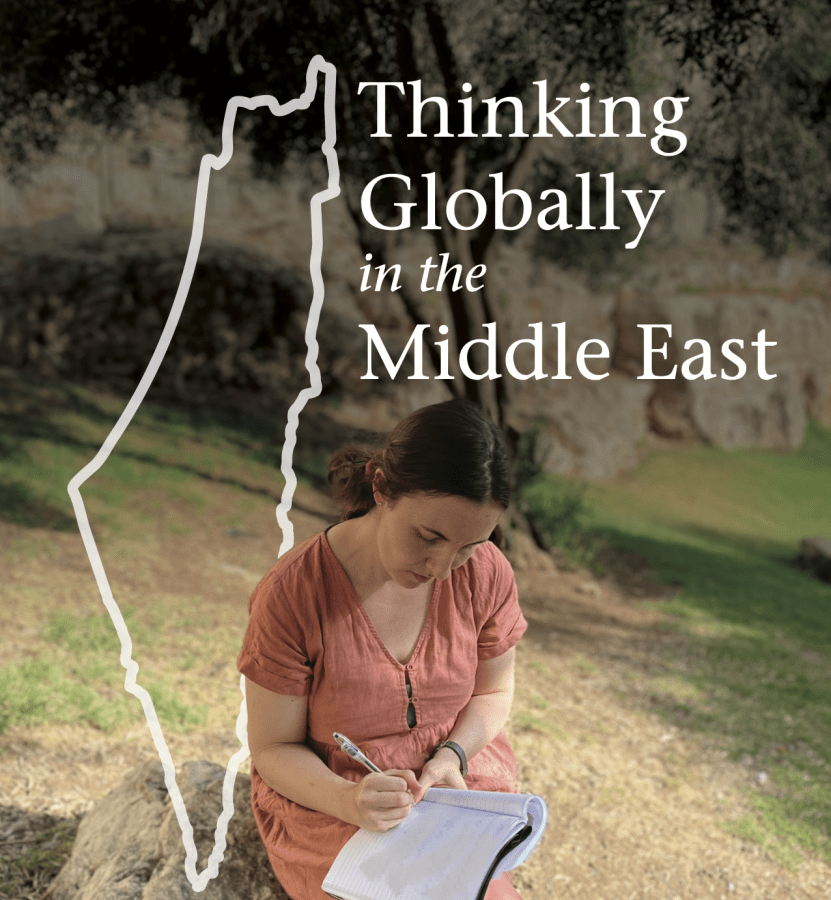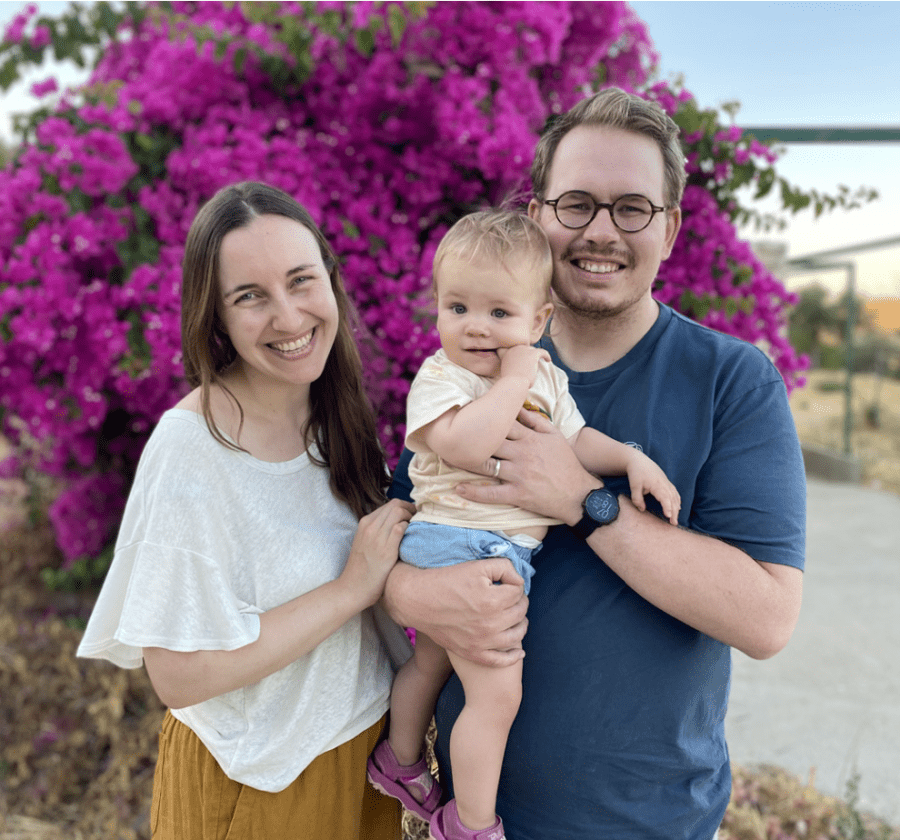Magazine Fall 2023 Thinking Globally in the Middle East
by Connie Gundry Tappy '80
HANNAH EARLY BAGDANOV ’16 traveled to Israel/Palestine for the first time during her semester with Westmont in Istanbul. Visiting multiple countries in the Middle East awakened her interest in the politics of the region, especially in Israel/Palestine. A political science major, she completed the track in international security and development.
“I knew I was interested in global politics, and ‘thinking globally’ as an undergraduate at Westmont helped me begin generating research questions,” Hannah says.
Now in her fifth year as a doctoral student at the University of Notre Dame, she studies political violence, state and non-state governance and identity in the Middle East. “My dissertation examines the political behavior of civilians in contexts of conflict,” she says. “It looks at what I call ‘everyday political behavior,’ or the ways people engage with the government on a daily basis — contacting a government official for help with a problem in the neighborhood or attending a government-run community center — as distinguished from more formal manners of political participation, such as voting or protesting.”
To conduct research for her dissertation, Hannah, her husband, Joe ’14, and their nine-month-old daughter, Naomi, moved to Jerusalem in January 2022 and spent a year there. She served as a visiting research fellow at the Hebrew University of Jerusalem.
“We lived just across the wall from Bethlehem at the Tantur Ecumenical Research Institute,” she says. “Earlier, Joe and I lived in Jerusalem for periods of up to three months, so we were able to build on previous relationships to plug in quickly both professionally and personally.”
With support from a National Science Foundation grant, Hannah conducted 55 interviews with East Jerusalemites and also spearheaded a survey of these residents. Working with a Palestinian firm, she spent a year and a half preparing this survey instrument, which took her door to door throughout the neighborhoods of East Jerusalem.
Her interviews revealed that people’s connection to social networks within their neighborhood greatly affect how comfortable they feel engaging with the state. The survey also examines how Palestinians in East Jerusalem interact with the Israeli state in their pursuit of government services. “It catalogs which government goods, services and institutions they engage with regularly — or never do,” Hannah says.
Traversing East and West Jerusalem daily and living in the city for an extended period deepened and enhanced her research questions. “By the end of our year, I felt confident that I had truly ‘left it all on the field’ and had gleaned from my interviews all the information I could,” Hannah says.
Now living in Salt Lake City, where Joe serves as a pastor, Hannah has begun analyzing the results of her survey. A doctoral student affiliate of Notre Dame’s Kellogg Institute for International Studies and Klau Center for Civil & Human Rights, Hannah is finishing her degree remotely.
“While our daughter may not remember our year Jerusalem, she learned its rhythms,” Hannah says. “Our family will always think of Jerusalem as a home.”

